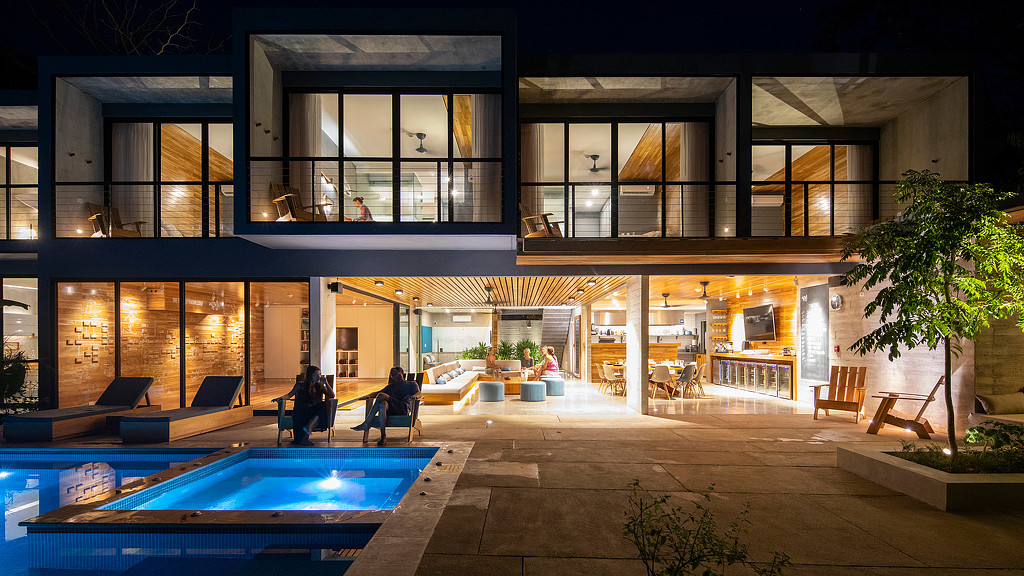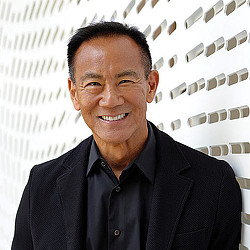How Will Hotels Rebound from COVID-19?
May 05, 2020 | By Tom Ito
Editor’s Note: This post is part of our ongoing exploration of how design is responding to the COVID-19 pandemic.
As the pandemic started to take hold globally in February, hoteliers began projecting an impact lasting more than a year. Now travel season is in sight and we are no closer to visiting the places we love.
While the short-term responses to create a safer hospitality experience are being discussed now, what are the long-term implications that will change how we travel and experience hotels? How do we rebuild the trust of hotel guests and give them confidence to return safely to hotels?
Here are seven considerations:
1. Continue to be beacons for the community.In the weeks and months since the beginning of the pandemic, hotels have stepped up to serve a higher purpose for their communities. The “Hospitality for Hope” initiative, for example, provides rooms to house healthcare workers, adapt as temporary healthcare spaces, and house the unsheltered.
Post-pandemic, we can expect hotels to embrace an even stronger sense of social responsibility as they engage and welcome back their communities. Through the next crisis, how will hotels give back?
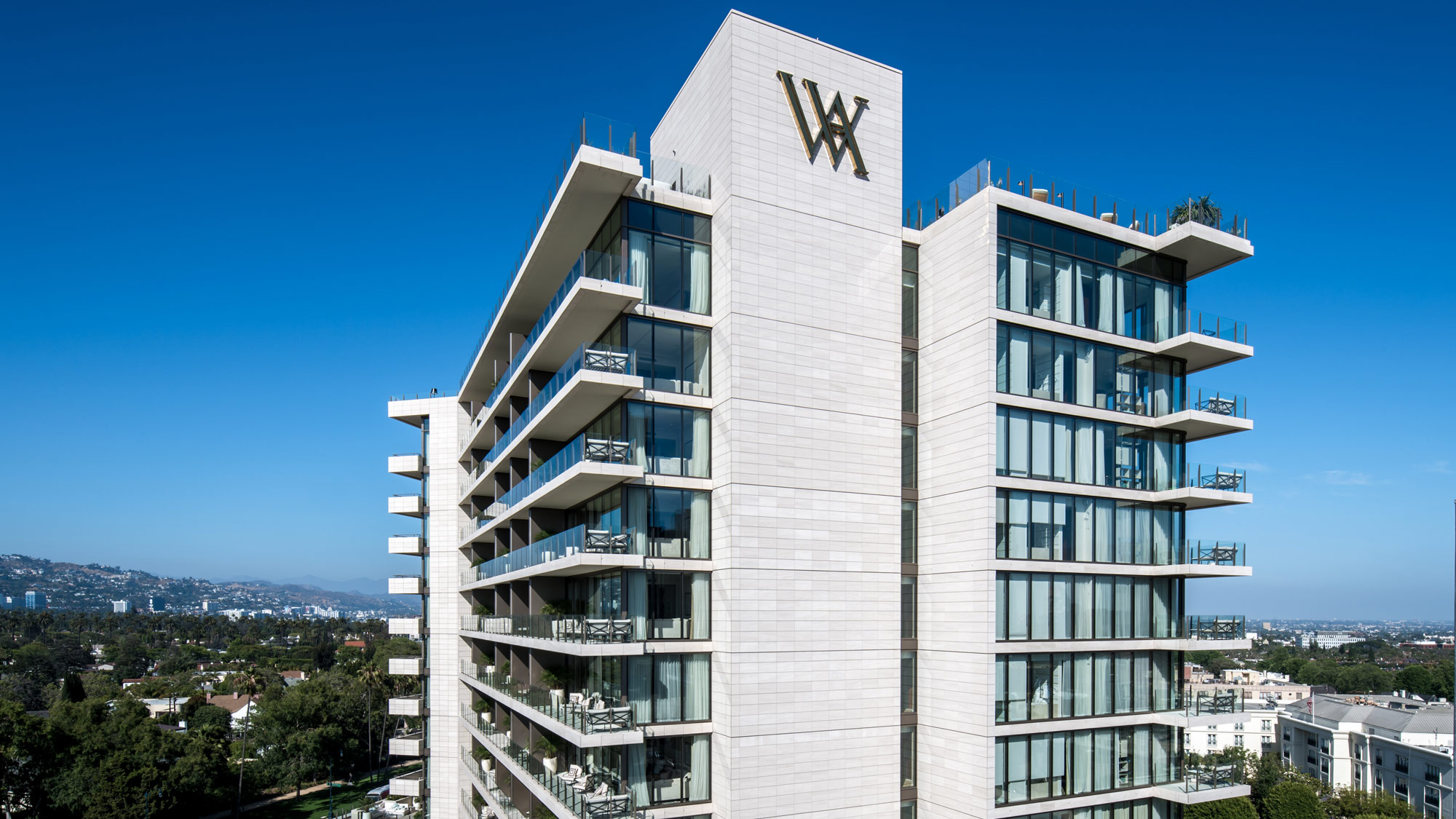
We think hotels will continue to be stronger community partners long after the current crisis. They’ll continue to provide for their employees, offer refuge following the next hurricane or flood, or serve meals to the needy.
In the immediate future as the country begins to reopen, hotels will be the hub that welcomes their communities with activities, events, and local hospitality. Until people become comfortable again with airline travel, we’ll see an initial focus on local and drive-to destination travel, reinforcing the importance of localization and community connections.
Essential stays and business travel are expected to return slowly, while leisure travel by people with discretionary incomes will pick up momentum over time.
3. Promote a culture of safety.In the post-911 world, many travelers encountered increased security measures at hotel entrances. As we learn from those tactics, hoteliers must balance safety measures with a sensibility that helps guests feel welcome and at ease.
Some measures will be tangible and immediate — things like touchless technology, keyless entry, and mobile payments that are tied to the individual guest. Other measures such as air filtration systems, UV light sources, disinfecting sprays, healthy materials, and new housekeeping protocols will communicate to guests that their safety is a primary concern.
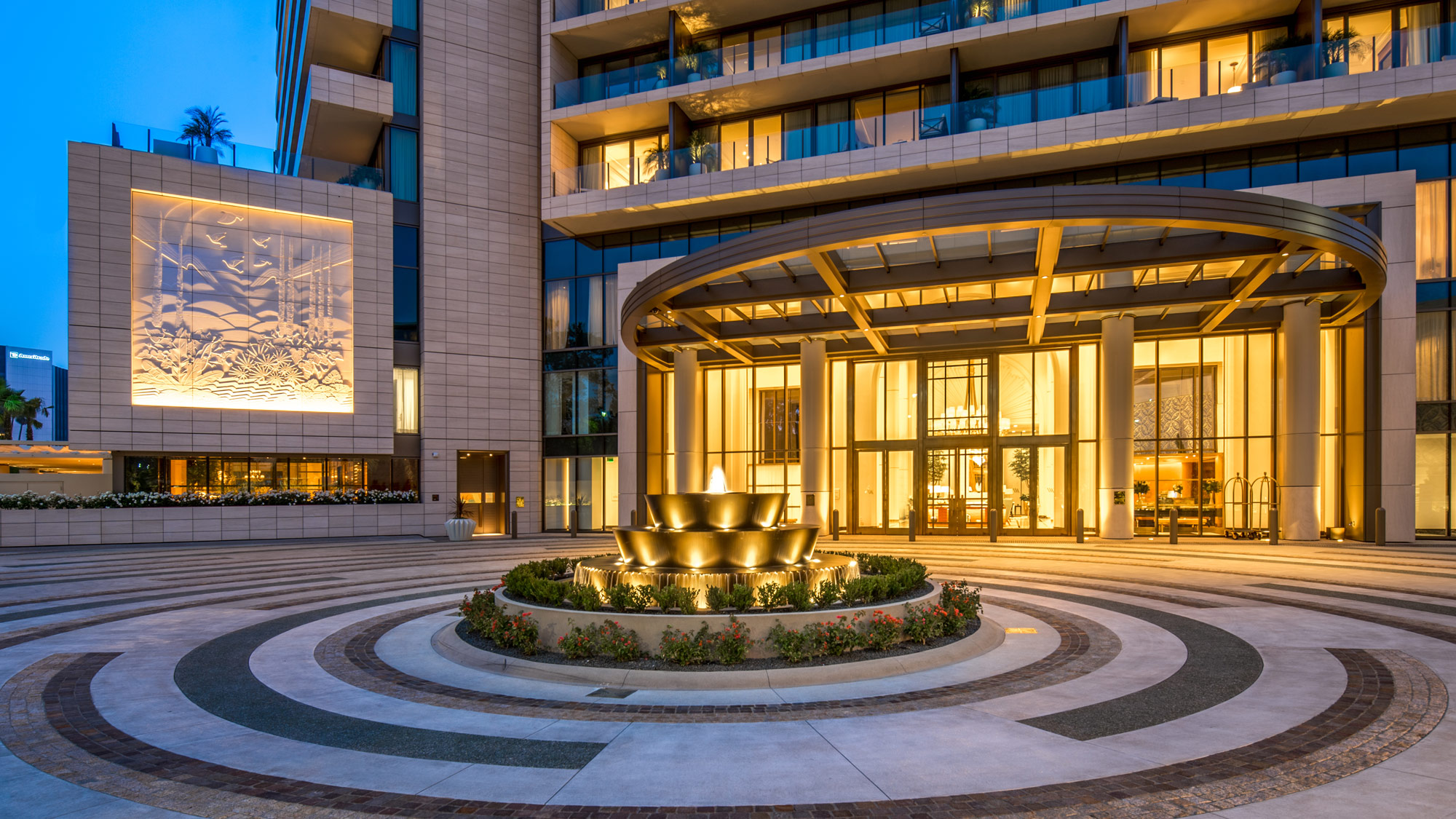
As technology, digital interfaces, and mobile connectivity become more prevalent, we have to remember that human interaction creates the memorable moments hotels are known for. There’s still nothing more comforting than a friendly face and a warm smile.
What’s harder to ascertain is how new social distancing norms will impact social spaces in hotels — places like lobbies, cafés, pools, and restaurants. As a start, gatherings may become smaller and more intimate, with more meaningful and exclusive experiences. The design of public spaces will be more flexible and adaptable to accommodate changes in behavior we still can’t anticipate.
When large conventions and exhibitions are permitted to return, space requirements and occupancy capacities may be adjusted to meet new safety standards in local jurisdictions. In the near future, hotel operators will be looking for flexibility in multiple types of meeting areas, digital interfaces, virtual meeting capacities, and access to outdoor spaces. Once-in-a-lifetime social occasions such as weddings, family gatherings, and special events are expected to return initially as a high priority.
In many ways, a great hotel is the sum of its experiences, so hoteliers should consider how their offerings, amenities, and spaces can be kept clean and safe, yet keep in mind how they also create engaging and aspirational experiences for their guests.
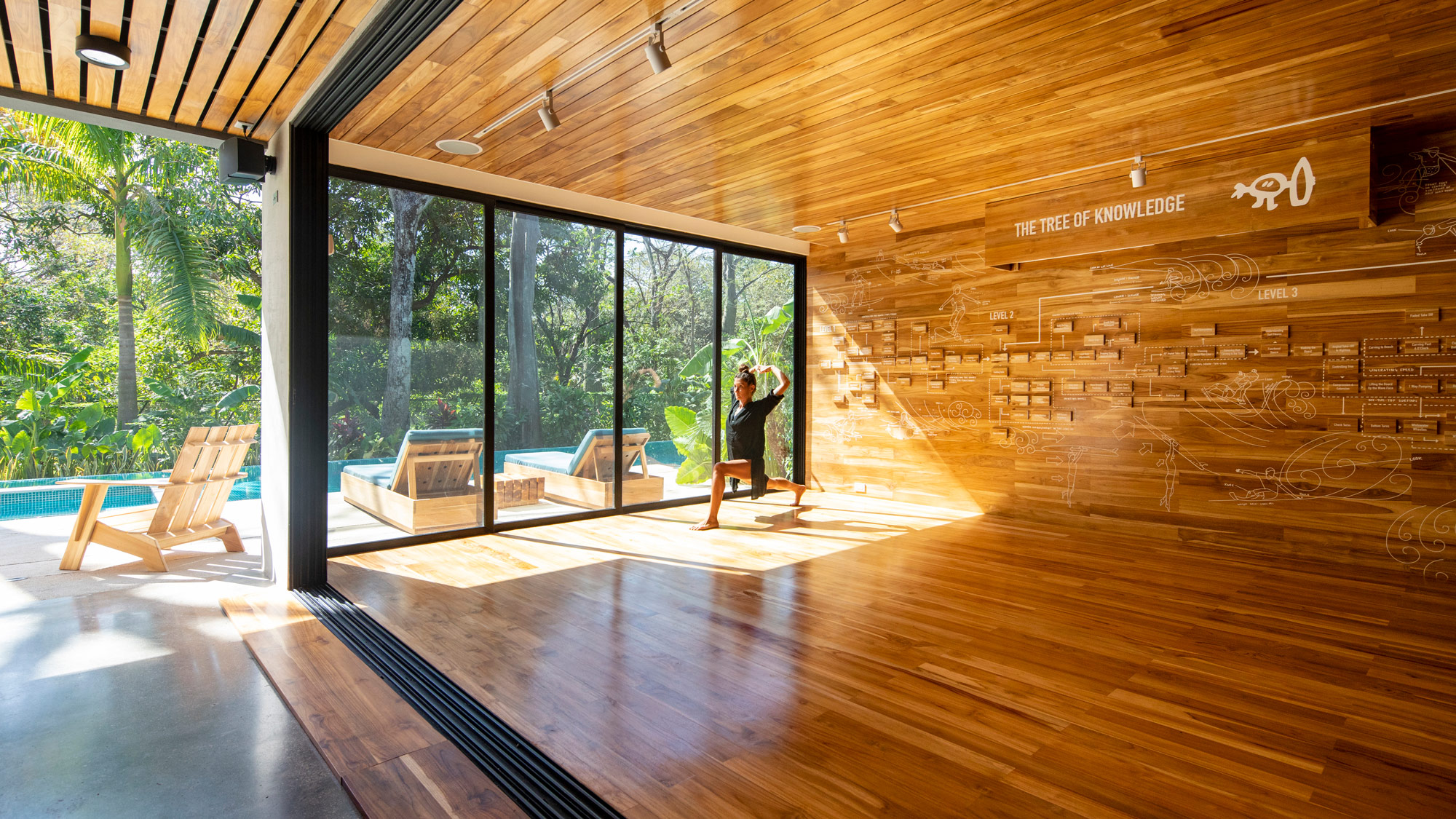
The COVID-19 pandemic has shown us that a sense of safety speaks to our overall well-being. Hotels have already made great efforts to create wellness programs. As in the workplace and aviation sectors, we can expect well-being and health to go further and become the standard of a hotel stay.
We could see more attention to food, exercise, spirituality, and beauty as a way to model healthier lifestyles and promote wellbeing. By supporting intangibles like these, hoteliers can create value for guests.
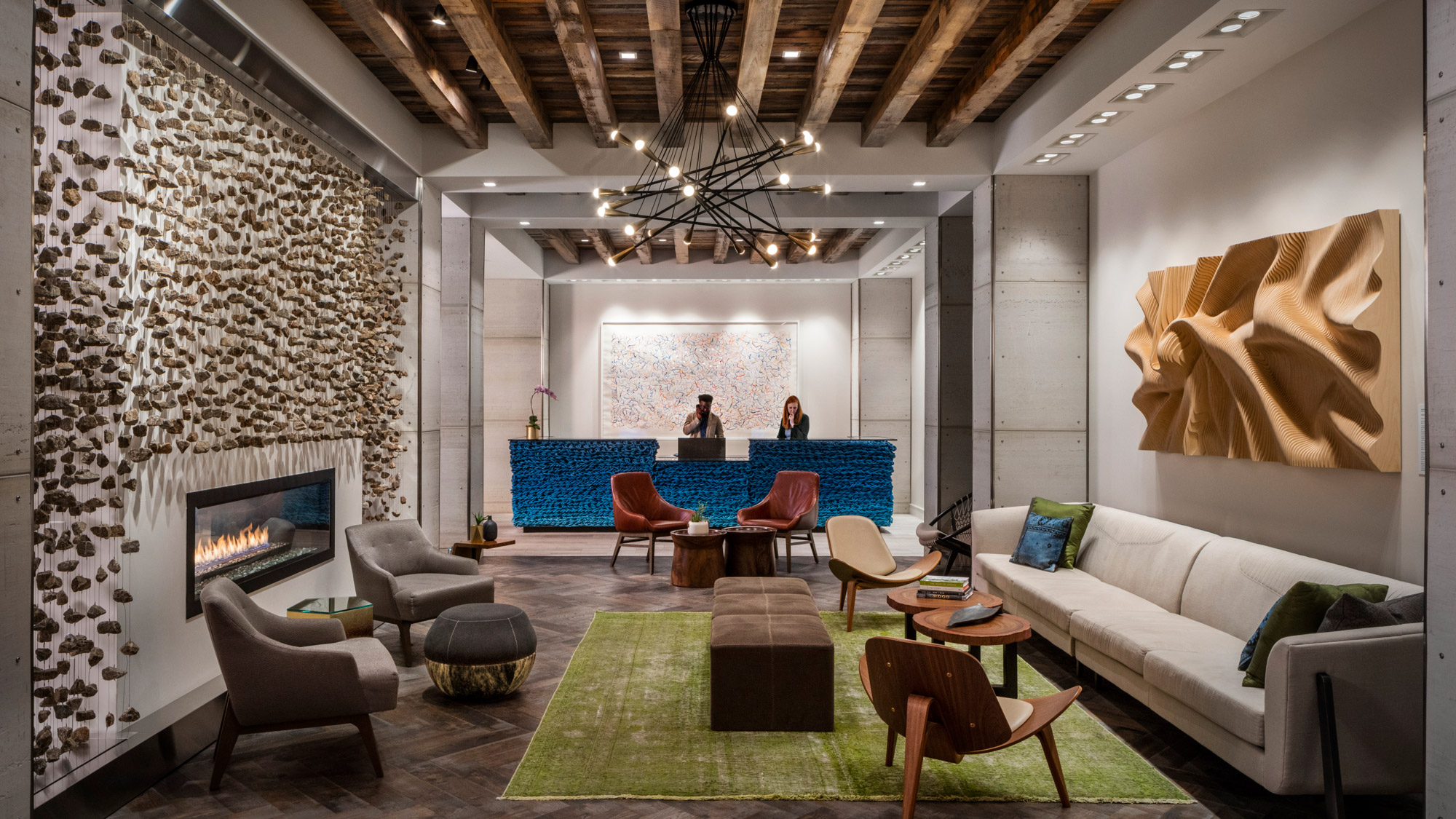
From a design perspective, it’s important to think about the guest’s experience as they enter a hotel. Upon arrival, what measures can hotels take to provide guests a feeling of health and wellbeing?
There could be an opportunity to create a wellness check zone or even provide an on-site clinic or healthcare space (which could be attached to a spa or a standalone for business hotels). In-room workout options and elevated dining experience in guest rooms could also be an option. These are long-term design considerations that could raise guests’ expectations for safety.
Simplicity in design promotes the perception of cleanliness and the reset of a new aesthetic. Seamless surfaces, hard flooring, simple bedding materials, and limited furnishings can be designed elegantly, yet still be easy to clean and maintain.
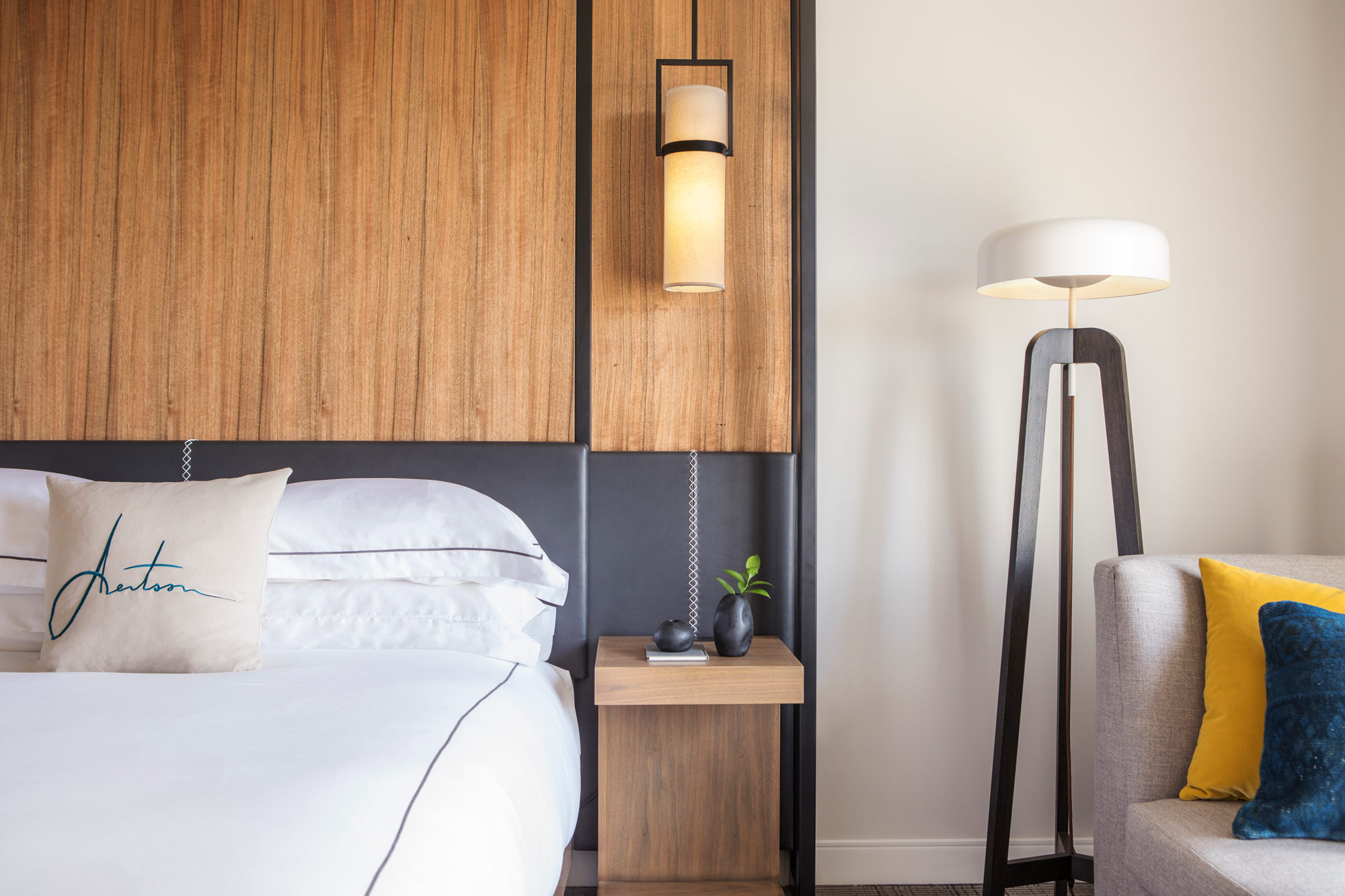
There is no denying that people eventually will resume traveling and return to hotels. What’s also likely is that a new crisis will emerge someday, demanding that hotels be ready.
The pandemic experience gives us the opportunity to rethink the future of hospitality.
How can we create spaces that are flexible and support a business model that is responsive to the next crisis? Can meeting spaces be resilient enough to host a wedding or convention, but serve as a medical triage space in a future emergency? This type of agility can provide a real value for hotels and their communities.
Whether it’s a health crisis, wildfire, or natural disaster, hotels will continue to be the place that puts personal interactions and emotional connections at its core to enhance the lives of all humankind. This is the moment to expand that role and prepare for the next challenge.
For media inquiries, email .
